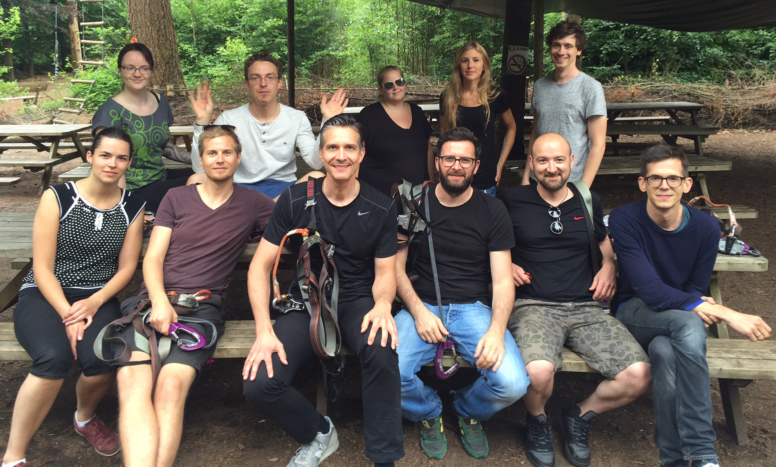Spatial and temporal relationships are usually not independent of one another: If something is further away, it also takes longer to get there. Previous studies have shown that a brain region called the hippocampus is involved in both memory for spatial layouts as well as for temporal relationships, however, few studies have investigated the two dimensions simultaneously.
To investigate memory for time and space separately in the same experiment, we let participants navigate through a computer game-like virtual city (‘Donderstown’) in which they picked up different objects along a pre-defined route. Over time, participants learned which object was encountered where and when. Crucially, at certain points along the route, participants had to use teleporters, which immediately ‘beamed’ them to a different part of the city. This way, certain objects along the route could be very far apart in space, but be encountered closely after one another in time.
Using fMRI, we then monitored brain activity while participants watched these objects and examined which impact the newly learned spatial and temporal relationships between them had on the hippocampus. Interestingly, we found that – compared to a baseline scan before the virtual navigation – neural patterns in the hippocampus got more similar for objects which were remembered as closer together. This was true for both the spatial closeness, and for the temporal closeness between objects. Moreover, the effect was most pronounced when items were both spatially and temporally close.





